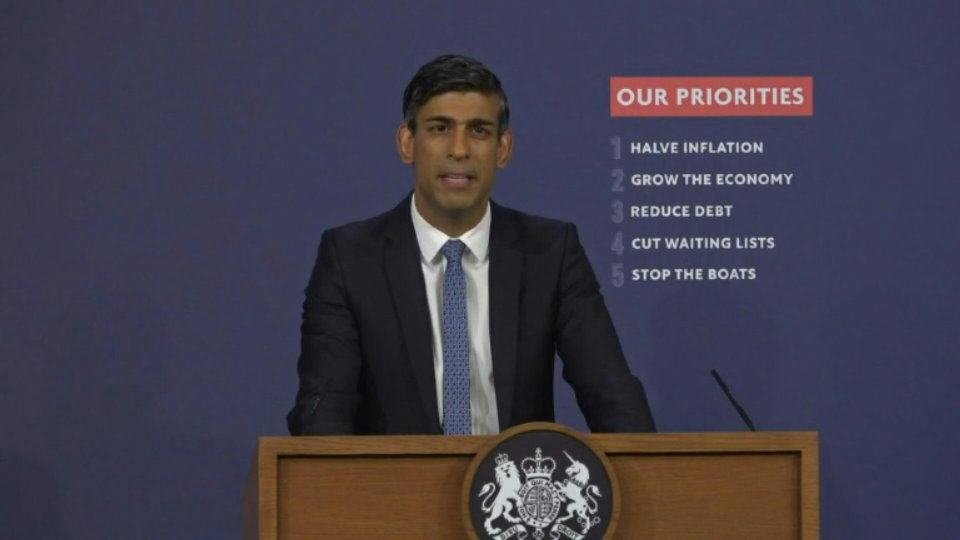
LONDON, July 14 (NNN-AGENCIES) — UK Prime Minister Rishi Sunak urged unions to call off strike action, warning the government will no longer negotiate on higher salaries.
The government said it had accepted recommendations from independent pay review bodies for salary increases of between 5.0 and 7.0 per cent in the public sector.
“Today’s offer is final. There will be no more talks on pay. We will not negotiate again on this year’s settlement,” Sunak told a news conference.
“No amount of strikes will change our decision.”
The announcement comes as hospital doctors below consultant level in England began a five-day strike over pay – the longest in the 75-year history of the state-funded National Health Service (NHS).
Consultants are preparing to walk out next week, heaping fresh pressure on the under-staffed and under-funded service, which is battling growing backlogs for patient care.
Britain has been hit by a wave of strikes in the last year, as soaring inflation increased the cost of living for millions across the country.
Sunak said all major teaching unions have accepted proposals for a 6.5-per cent increase and suspended planned industrial action.
He urged others in different public sectors to “do the right thing” and follow suit.
The UK leader has made a promise to halve stubbornly high inflation, which is currently nudging 9.0 per cent.
But he said the pay increases – which will cost an extra £1 billion – would not be met by more government borrowing, raising fears about further public-sector cuts.
“It would not be right to increase taxes on everyone to pay some people more, particularly when household budgets are so tight,” he told reporters.
In parliament, Treasury minister John Glen said armed forces personnel would get a 5.0-per cent increase, junior doctors will get 6.0 per cent, and police and prison officers 7.0 per cent.
“Our decision is responsible because, unlike some unsustainable demands, we have delivered awards that don’t further fuel inflation and make the inflationary environment worse,” he told MPs.
Government department efficiencies – such as civil service recruitment – and an increase in how much migrant workers pay to use the NHS would help to the pay rises, he added.
The surcharge – paid as part of a visa application – will go up to £1,035, while the cost of work and visit visas will go up by 15 per cent.
The cost of study visas, certificates of sponsorship, wide entry clearance, leave-to-remain and priority visas, and others, will rise by at least 20 per cent.
It remains to be seen whether unions will accept the pay offers, as junior doctors for example want a rise to reflect real-terms losses in salaries as inflation has risen over the last 15 years.
The British Medical Association union says that effectively amounts to a 35-percent rise which the government, which had offered 5.0 per cent, says is unaffordable.
BMA chairman Phil Banfield called the public sector pay review “a huge opportunity to put a credible proposal on the table to end strikes”.
“This uplift still fails tens of thousands of frontline staff and is unlikely to do much to help retain a beleaguered, burnt out, undervalued workforce,” he added.
Strike action remained “highly likely”, he said.
The Police Federation union’s national chairman Steve Hartshorn called the pay offer “a step in the right direction” but failed to take into account the 17-per cent drop in the purchasing power of their wages since 2000. — NNN-AGENCIES





